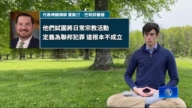【新唐人2011年3月18日讯】中国“稀土”新的政策,限制了出口配额,对中外合资的采矿业也要求中方拥有多数股份。外资认为中国想要垄断稀土市场意图明显。专家表示,担心中国“稀土政策”将来会变成一个问题。
“稀土”是不可再生的战略资源,被广泛应用在国防、航太、电子、IT、核工业、绿色经济等各项领域。中国“稀土”储量占全球36%,却供应了95%的产量,这些国家担心一旦受到限制,势必会影响他们的科技工业发展。
华府智库传统基金会亚洲研究中心安全和外交研究员成斌(Dean Cheng)向《美国之音》表示:“美国不仅担心中国利用对稀土供应的控制,推进自身经贸利益,同时也担心中国运用这种优势,施加政治和安全方面的影响力。”他更担心中国把稀土当作一张牌,未来可能变成一个问题。
《美国之音》报导美国4名参议员,联名写信给美国财长盖特纳和内政部长萨拉查,建议在中国同意公平参与全球稀土元素贸易之前,美国行政当局应该阻止中国在世界范围内,包括在美国境内的采矿专案融资。
他们在信中指出,美国军方、国防承包商、以及联邦政府的相关机构,对中国主控的稀土市场过分依赖可能产生的风险。金属铈的供应紧张已经造成国防部武器系统研发的推迟,构成美国国安潜在威胁。通用汽车生产的VOLT电动汽车引擎和Sydor Optics的3D电影放映机镜头,都要依赖稀土金属生产,业务也受到严重损失。
舒默和斯塔贝诺议员表示,北京当局“持续减少全球市场的稀土量,导致倚赖稀土元素的产业成本飙升”,引发“经济和国家安全问题”。
美国“国际与战略研究中心”的能源和国家安全高级顾问罗伯特?艾伯尔 (Robert Ebel)也表示:“中国收紧对稀土出口的控制,是出于对自己战略利益的考量。”他建议各国应该寻找替代资源,或是在自己国内开采。
《环球时报》17号报导,澳大利亚矿业公司Lynas将在马来西亚建设大型精炼厂提炼稀土,如果今年9月份顺利投产,将可以提供全球1/3的稀土需求,“终结中国在稀土出口领域的垄断地位”。不过这项计划还没得到马国政府正式表态支持。
新唐人记者 李庭 王明宇综合报导
======
China’s New ‘Rare Earth’ Policy An Issue
China’s new ‘Rare Earth’ policy limited
its export quotas for rare earth metals.
In addition, China asked for a majority share
in foreign joint mining industries.
Foreign investors believe
that China has an obvious intention
to monopolize the rare earth market.
Experts are concerned that China’s
rare earth policy would become a problem.
Rare earth metals are non-renewable
strategic resources, which are widely used
in national defense, aviation, electronics, IT,
nuclear and green economy industries. China
has 36% of world’s total rare earth reserves
while providing 95% of world’s total production.
Some foreign countries are concerned that
their technology industries would be influenced,
once the rare earth export is limited.
Dean Cheng of Asian Research Center
at DC based think-tank, Heritage Foundation,
told VOA: “America is not only concerned
that China will gain its own economic and
trading interests by controlling rare earth supply,
but also fears that it will exert political
and safety impact by using this advantage.”
He is even more worried that China
will use rare earth trade as a bargaining chip,
which might become a problem in the future.
Voice of America said, that 4 US senators wrote
to the Secretary of Treasury, Geitherner,
and the Secretary of the Interior, Salazar,
suggesting that American executive authorities
should stop China’s mining projects from being
financed worldwide or in the US, before China
agrees on its impartial participation
in the world’s rare earth trade.
In the letter, they pointed out the possible risks
faced by US military, defense contractors and
other related federal institutes,
if they relied too much on the rare earth market
controlled by China. The shortage of Cerium,
for example has resulted in delayed development
of US Department of Defense’s weapon system
and posed potential threats
to US national security.
General Motors’ VOLT electric car engines
and Sydor Optics’ 3D movie projector lens,
both relying on rare earth metals production,
have also suffered huge losses.
Senators Schumer and Stabenow said, that
Beijing authorities “had continuously reduced
world’s amount of rare earth, which resulted in
soaring costs of rare earth based industries”,
and “problems in economy and national security.”
Robert Ebel, a senior adviser
in the Energy and National Security Program
at US Center For Strategic & International Studies,
said: “China tightens limits on rare earth exports
for the sake of its own interests.”
To tackle this problem he suggested
foreign countries should look
for alternative sources or extract domestically
rare earth products.
According to a Global Times report from March 17,
Lynas, a Canadian mining company, is going to
build a large rare earth refinery in Malaysia.
If it is put into operation this September,
it will cover 1/3 of world’s demand
for rare earth metals,
therefore “ending China’s monopoly position
in rare earth export”.
However this plan is still to be approved
by the Malaysian government.
NTD reporters Li Ting and Wang Mingyu




























